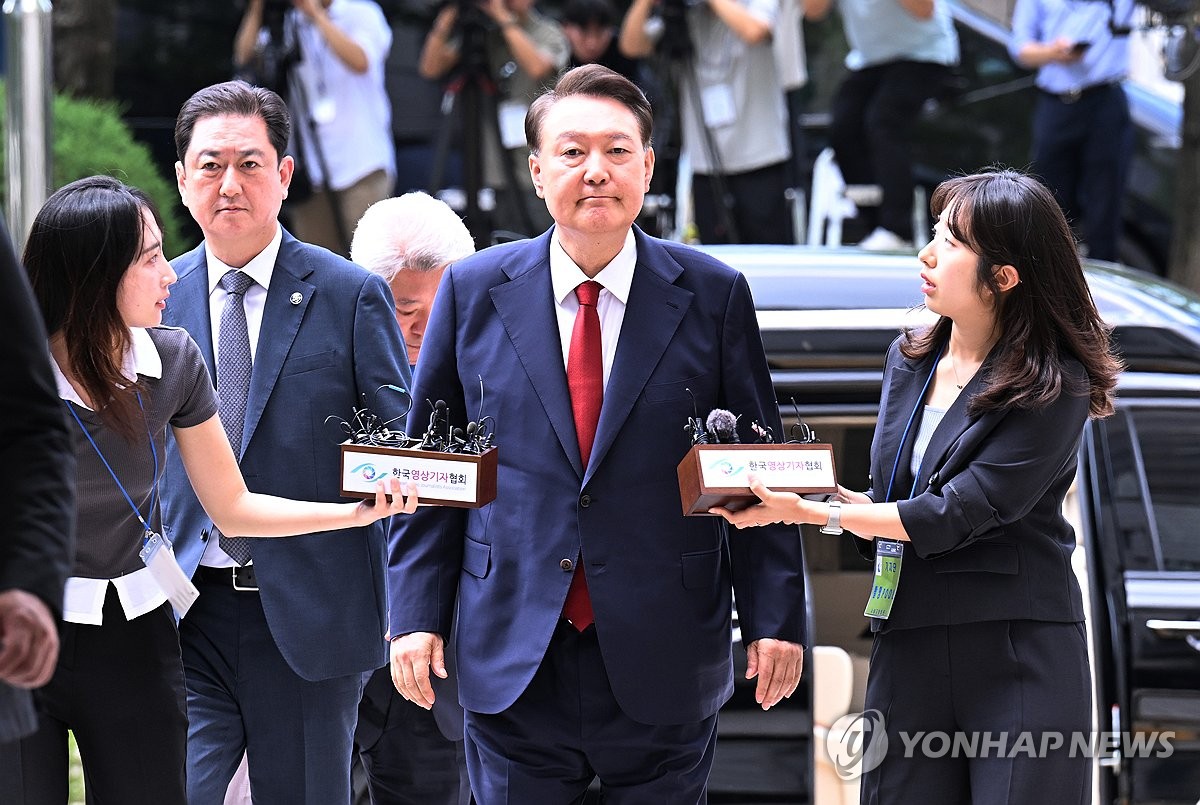Senior Judge Nam Se-jin at the Seoul Central District Court issued the warrant on 10/7 following a request from special prosecutor Cho Eun-seok, due to concerns that Yoon might "destroy evidence".
Prosecutor Park Ji-young, a member of the special prosecution team, confirmed, "We have just checked and confirmed that the court has issued an arrest warrant,".
 |
Former South Korean President Yoon Suk-yeol (center) arrives at the Seoul Central District Court on 9/7. Photo: Yonhap |
Former South Korean President Yoon Suk-yeol (center) arrives at the Seoul Central District Court on 9/7. Photo: Yonhap
The 64-year-old former president is on trial for rebellion charges and recently appeared in court to refute some of the allegations. However, he ignored several summonses from the special prosecutor's office, leading them to request an arrest warrant on 24/6.
That request was denied after the court noted Yoon's apparent willingness to cooperate. On 7/7, special prosecutor Cho Eun-seok filed a new arrest warrant request related to charges of abuse of power and obstruction of justice, arguing that Yoon's detention was necessary.
Yoon attended a 7-hour court hearing on 9/7 and denied all charges. He was then taken to a detention center near the capital pending the court's decision.
Following the court's issuance of the new arrest warrant, the former president was placed in solitary confinement at the facility. He could be detained for up to 20 days while prosecutors prepare to indict him on charges including abuse of power in convening the cabinet, fabricating documents, spreading misinformation, obstructing investigations, and destroying evidence. If indicted, Yoon could face up to 6 months in jail until the court issues an initial ruling.
During the 9/7 hearing, Yoon's lawyers criticized the arrest request as unreasonable, emphasizing that he had been impeached and "no longer has any authority,".
This is Yoon's second arrest, following his first detention in January while still in office. A court later overturned that warrant and released him in March.
South Korea's Constitutional Court impeached Yoon in April after the National Assembly voted to remove him for imposing martial law in December 2024. South Korean lawmakers scaled the walls of the parliament building and broke through security lines to vote against the martial law decree.
Yoon faces numerous charges, including masterminding the rebellion, which carries a maximum penalty of death or life imprisonment.
South Korean authorities appointed Cho Eun-seok as the special prosecutor, leading a team of over 200 prosecutors and specialists investigating Yoon, a few days after Lee Jae-myung took office as president.
Huyen Le (AFP, Yonhap)












